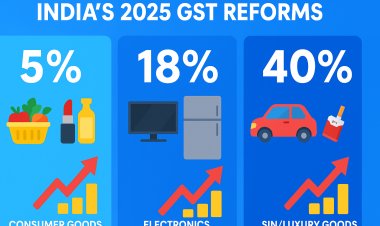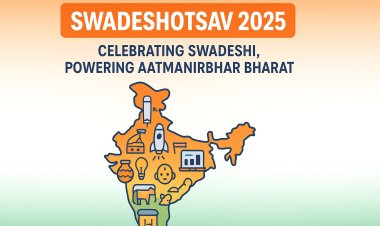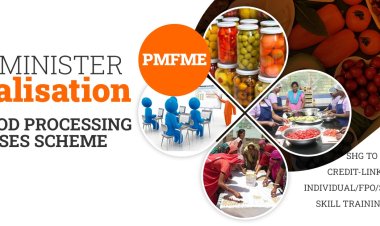Overview Of PMFME Scheme - Full Form, Eligibility and Benefits
Learn about the Pradhan Mantri Formalization of Micro Food Processing Enterprises (PMFME) Scheme. Discover its full form, eligibility criteria, and benefits aimed at supporting micro food processing units in India.
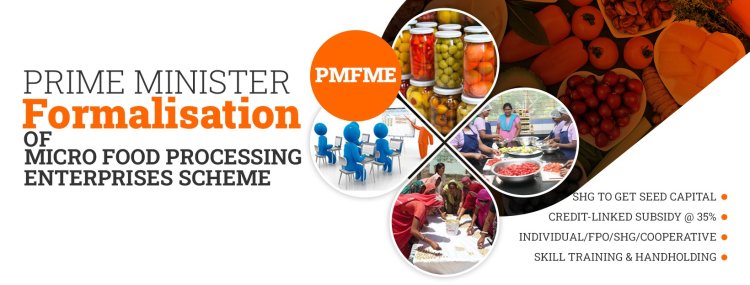
Pradhan Mantri Formalisation of Micro Food Processing Enterprises (PMFME) Scheme: Empowering Micro-Enterprises in India's Food Sector
The Pradhan Mantri Formalisation of Micro Food Processing Enterprises (PMFME) Scheme is a nationwide initiative launched by the Ministry of Food Processing Industries (MoFPI), in partnership with the State and Union Territory (UT) Governments, under the Aatmanirbhar Bharat Abhiyan. This comprehensive scheme focuses on formalizing and improving the competitiveness of India’s micro food processing units, especially those within the unorganized sector. It also aims to support Farmer Producer Organizations (FPOs), Self-Help Groups (SHGs), and Producers' Cooperatives across the value chain. The scheme has a target to assist 200,000 micro food processing units directly with a credit-linked subsidy. By fostering supportive infrastructure and robust institutional frameworks, the PMFME Scheme seeks to transform India's food processing sector.
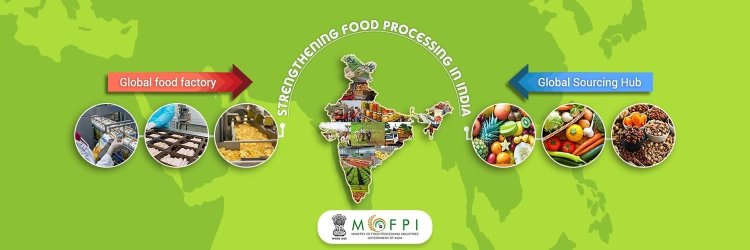
Objectives and Key Features of the PMFME Scheme
The PMFME Scheme's primary objective is to enhance the competitiveness and sustainability of India’s unorganized micro food processing sector by formalizing operations and improving access to credit, technology, and markets. Key features of the scheme include:
- Credit-Linked Subsidy: Financial assistance in the form of credit-linked capital subsidies is provided to eligible micro food processing units to improve their operational and production capabilities.
- Supportive Infrastructure: The scheme invests in building essential infrastructure such as storage facilities, packaging, and value addition facilities that streamline the supply chain and reduce wastage.
- Capacity Building Initiatives: Training and skill-building programs are offered to micro-entrepreneurs and workers in the food processing industry, enhancing productivity and quality standards.
This structured approach aims to make the sector more resilient, competitive, and aligned with modern standards, boosting the sector’s growth and sustainability.
PM Formalisation of Micro food processing Enterprises (PMFME) Scheme, an initiative under Aatma Nirbhar
Bharat Abhiyan, is being implemented by Ministry of Food Processing Industries (MoFPI) with an outlay of
10,000 Crore over a period of 5 years from 2020-21 to 2024-25.
The Scheme aims to augment the existing individual micro-enterprises in the unorganized segment of the food
processing industry and formalize two lakh micro food processing enterprises with special focus on supporting
groups such as Farmer Producer Organizations (FPOs), Self-Help Groups (SHGs) engaged in Agri-food
processing sector, inter-alia, by providing:
a. Seed capital @ Rs. 40,000/- per SHG member for working capital and purchase of small tools
b. Support to food processing enterprises through credit-linked capital subsidy@35% of the eligible project cost with a maximum ceiling of Rs.10 lakh per unit
c. Credit linked grant of 35% for capital investment to FPOs/ SHGs/ producer cooperatives.
d. Support for marketing & branding to micro units
e. Training and capacity building
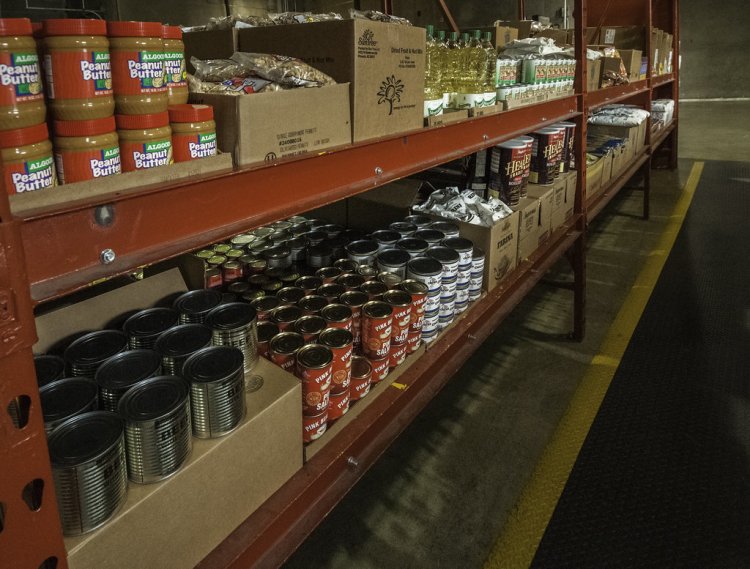
PMFME Scheme Financial Outlay and Support Mechanism
The PMFME Scheme is backed by a robust financial outlay for five years, with an allocation shared between the Central and State Governments. Key elements include:
- Total Financial Allocation: The scheme has a substantial budget allocated for a five-year period to meet its ambitious goals, covering infrastructure, capacity-building programs, and credit subsidies.
- Credit-Linked Subsidy: A core feature of the PMFME Scheme, this subsidy provides micro-enterprises with direct assistance, lowering financial barriers and enabling enterprises to invest in equipment, technology, and infrastructure. This subsidy mechanism promotes growth, modernization, and competitiveness within the sector.
Through this balanced financial support, the scheme ensures that each unit has the necessary resources to grow sustainably.
Some of the crucial components associated with the PM FME Scheme are as under:
-
The scheme predominantly focuses on Individual entrepreneur, Proprietorship, partnership, private ltd. Also, supporting groups involved in the food processing sector. Such groups include Farmer Producer Organisations (FPOs), Self-Help Groups (SHGs), Micro Food Processing Entrepreneurs, and Cooperatives along with their entire value chain.
-
The scheme supports food processing enterprises with a credit-linked subsidy of up to 35% of the eligible project’s cost with a maximum ceiling amount of ₹10 lakh per unit.
-
The Central and State governments will share the expenditure under the scheme. The expense-sharing ratio is 60:40. However, the expense-sharing ratio between the Central Government and the North Eastern or Himalayan States is 90:10. In the case of Union Territories, the expense-sharing ratio is 60:40 with the legislature and 100% contributed by the Central government without legislatures.
-
The initial seed capital provided under the scheme is ₹40,000 for SHGs to fulfil working capital requirements and purchase small tools.
Eligibility Criteria for Beneficiaries of PMFME Scheme
To qualify for the PMFME Scheme, specific eligibility requirements must be met. The eligibility extends to:
- Existing Micro Food Processing Units: Micro food processing units already operating in the unorganized sector are eligible if they meet certain productivity and scale requirements.
- Farmer Producer Organizations (FPOs): FPOs actively engaged in food processing and value addition are eligible for subsidies and infrastructure support.
- Self-Help Groups (SHGs) and Producers' Cooperatives: SHGs and cooperatives engaged in micro food processing can also benefit from the scheme. These groups are crucial in rural India and often lack resources to scale their operations.
- The applicant must be a permanent resident of India.
- The applicant must be a small entrepreneur in the food processing sector.
By including these entities, the scheme empowers small-scale and rural enterprises, enabling them to access financial and technical resources that were previously out of reach.
Benefits Offered by the PMFME Scheme
The PMFME Scheme provides a wide array of benefits aimed at enabling micro food processing units to improve their operational and market capabilities. These include:
- Financial Assistance: Direct financial assistance is provided in the form of a credit-linked subsidy, allowing enterprises to invest in production improvements and capacity expansion.
- Non-Financial Support: In addition to subsidies, beneficiaries have access to technical support, training programs, and market access initiatives. These include assistance with packaging, branding, quality control, and the use of e-commerce platforms to expand market reach.
- The selected applicant under the scheme will receive a credit-linked capital subsidy of @35% of the eligible project cost with a maximum ceiling of Rs.10 lakh per unit.
- The applicants will also get seed capital @ INR 40,000/- per SHG member for working capital and purchase of small tools.
- With the help of this scheme, small entrepreneurs can upgrade their businesses with the help of financial assistance.
- By upgrading their business entrepreneurs must need more workers which will also create employment opportunities for others.
Through these benefits, the PMFME Scheme not only improves business performance but also facilitates market entry and competitiveness, fostering a more dynamic and inclusive food processing ecosystem.
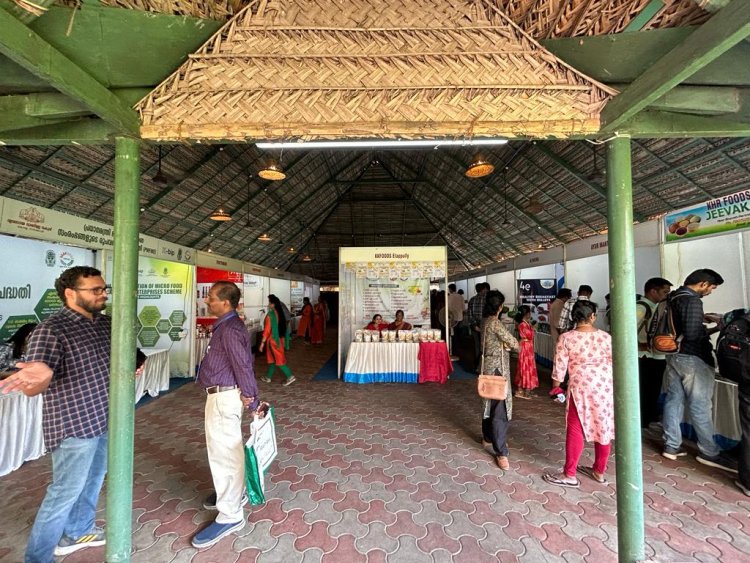
Application Process for the PMFME Scheme
The application process for the PMFME Scheme is structured and accessible. Interested micro food processing units, FPOs, SHGs, and cooperatives can apply by following these steps:
- Online Application: Applicants must fill out an online application form on the official PMFME Scheme portal, providing accurate details about their business, production scale, and objectives.
- Documentation: Specific documentation is required, including proof of business registration, operational scale, and compliance with eligibility criteria.
- Verification Process: Once submitted, applications undergo a verification process by relevant authorities to ensure that the applicant meets the scheme's eligibility requirements.
Required Documents
- Aadhar Card
- Email ID
- Mobile Number
- Electricity bill
- Address Proof
- PAN Card
This streamlined application process enables a broad range of entities to apply and ensures timely and efficient disbursement of benefits.
Future Prospects and Goals (PMFME 2024)
By 2024, the PMFME Scheme is expected to have achieved significant milestones in transforming the food processing sector, with the following future outlook:
- Widespread Formalization: The scheme aims to bring a substantial number of unorganized units into the formal sector, enhancing their access to credit, technology, and markets.
- Increased Employment and Rural Empowerment: With improved access to resources, micro food processing units are expected to create job opportunities, especially in rural areas, contributing to local economies.
- Growth in Market Competitiveness: The scheme aims to produce a network of competitive micro-enterprises that can thrive in both domestic and global markets, enhancing India's position in the food processing industry.
- With the help of the scheme the Government of India will increase the competitiveness of micro food processing enterprises.
- It adopts the One District One Product (ODOP) approach to leverage the benefits of scale in terms of procurement, common services, and marketing.
- The scheme will also provide training and education to all small-scale entrepreneurs to upgrade their businesses significantly.
- It provides a credit-linked capital subsidy of 35% of the eligible project cost, up to a maximum of Rs. 10 lahks per unit, for individual/group category micro-enterprises.
Through these goals, the scheme aspires to establish a sustainable and competitive micro food processing ecosystem, driving both economic growth and rural development.
Conclusion
The Pradhan Mantri Formalisation of Micro Food Processing Enterprises (PMFME) Scheme holds transformative potential for India’s micro food processing sector. By focusing on formalizing and strengthening unorganized micro-enterprises, the scheme empowers small businesses to contribute to the national economy while improving their own sustainability and resilience. With its comprehensive approach—encompassing financial subsidies, infrastructure development, and capacity building—the PMFME Scheme stands as a beacon for economic growth and self-reliance, fostering a brighter future for micro-entrepreneurs across India.

 Editor
Editor 






